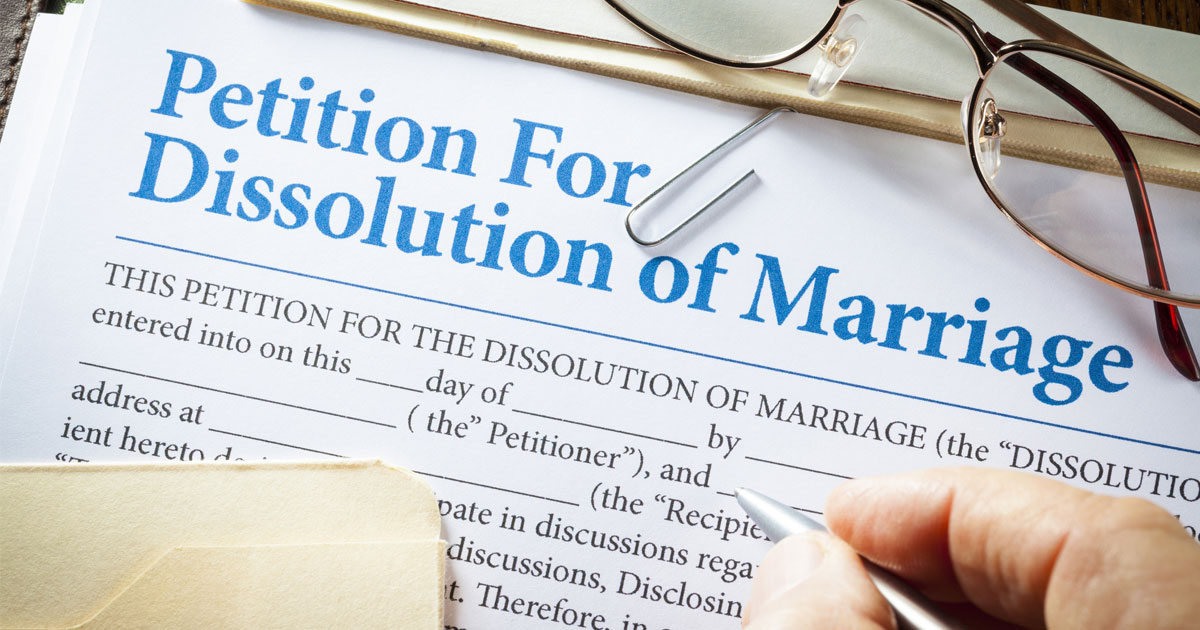There are many benefits to getting married and staying married. For example, wedded couples are less likely to be depressed, distressed, or suffer from substance abuse. Of course, no one enters a marriage thinking that they will ever get divorced, yet divorce rates remain high in this country.
One way you can anticipate challenges – or maybe even improve your chances of staying married – is to understand the causes of divorce. Learn more about the most common reasons cited for divorce from the skilled family law attorneys behind Draft My Legal Docs.
Lack of Family Support
The first several years of marriage are often the hardest. This is often when children enter the picture, and rearing newborns and toddlers can add to the stress of marriage. Many young married couples struggle to navigate those challenges, especially when they lack family support.
Family support can come in many forms. For example, having a parent come to watch the children can provide important relief for working parents. In addition, observing successful marriages in the family can be key; doing so can help young couples remember that courtship and dating do not have to end once they get married. Both circumstances can keep the romance in the relationship strong.
Without support from family –whether it be financial support, advice, childcare, or even a positive example – couples are more likely to get divorced.
Extramarital Affairs
An extramarital affair can quickly sever trust between two spouses. Before states adopted no-fault divorce laws, affairs and infidelity were among the few reasons someone could file for divorce. Given the role of marriage in child rearing, it is no surprise that an extramarital affair remains a leading reason cited for divorce in this country.
However, in many cases, by the time an affair happens, there is often already trouble in the relationship. Affairs may occur because one partner believes they are not getting the attention, respect, and intimacy that they would like at home.

Lack of Compatibility
A lack of compatibility could mean one of many things. Compatibility is generally thought to mean the ability to work together and get along in a range of areas. Often, people who say they are compatible with their spouse share similar personality characteristics with them. Compatibility also refers to the ability to have a disagreement and work through those differences without escalating the situation.
Sometimes, it is only after tying the knot that one or both spouses realize that they are not fundamentally compatible as a couple.
Lack of Intimacy
Although a lack of intimacy is often a symptom of other underlying issues in a marriage, missing this crucial component of a marriage can lead to divorce. All it takes is one partner to withdraw from acts of physical intimacy. The other partner may grow resentful or seek intimacy outside of the marriage. With open communication and possibly therapy, couples may be able to work through this problem without it ruining their marriage.
Too Much Conflict
In a healthy marriage, occasional arguments are not uncommon. They are often considered a normal part of any relationship. However, when conflicts escalate to the point where they occur on a daily basis, the constant stress and strain of verbal or physical altercations can gradually erode the foundation of the marriage. Frequent conflicts may signal underlying issues, such as unresolved anger or communication problems.
One or both partners may come to the realization that the ongoing tension and discord are unsustainable. In some cases, underlying anger issues or other unresolved conflicts may become more apparent, leading one or both spouses to recognize that living apart may be preferable to the daily turmoil within the marriage. This realization can ultimately prompt the decision to pursue divorce.
Financial Stress
Money can’t solve all life’s problems, but it can make marriage more sustainable. The opposite is true as well, as financial stress can lead to arguments at home. In addition, when the household breadwinner is unable to provide for their family comfortably, they may turn those feelings of shame into more dangerous habits like drinking or verbal abuse.

Financial stress makes planning for a brighter future more difficult, if not impossible. With no hope for improvement, many couples decide that divorce is the best option. Sometimes, those decisions are made in hopes of a better economic future.
Lack of Commitment
Marriage is regarded as one of the most significant commitments an individual can make in their lifetime. It is a journey filled with highs and lows, and few would claim that maintaining a marriage is easy. Most couples recognize that a successful marriage requires ongoing effort and dedication.
Each challenge that arises within a marriage presents an opportunity for growth and strengthening the marital bond. Couples who actively work on their relationship, communicate openly, and navigate obstacles together often emerge with a deeper connection and greater resilience.
Unfortunately, when one or both spouses lack the commitment or willingness to invest in the marriage, the relationship can deteriorate. Conflicts may go unresolved, trust may diminish, and emotional distance may grow. As the marital foundation weakens, the relationship may reach a point where continuing the marriage becomes untenable.
Parenting Differences
Once children come along, differences in parenting can cause division in the relationship. This could involve disagreements on discipline, education, values, or even fundamental parenting styles.
The resulting tension and lack of agreement on crucial parenting decisions can lead to communication breakdowns, resentment, and feelings of being unsupported. These conflicts may erode the marital bond and contribute to marital dissatisfaction, potentially leading to divorce.
Marrying Too Young
As we age, our values and expectations evolve. Someone who may have seemed like a lifelong partner at age 22 may be incompatible ten years later. Some spouses are able to grow together even as they grow in their own unique ways. Other married couples are less able to sustain their relationships as they grow as individuals.
Opposing Values or Morals
Most couples are aware of where they stand in their relationship with their partner when they get married. Still, seemingly minor differences over religion, politics, and other areas can become serious problems during marriage. In some cases, one or both spouses may evolve in their religious and moral views and beliefs.
Even when these differences did not seem like a serious problem at first, opposing values or differences in morality can gradually erode the bond that keeps a marriage together.
Substance Abuse
Substance abuse can be the root cause of a divorce, or it can lead to behaviors that ultimately make a marriage untenable. For instance, substance abuse can lead to financial stress, health issues, disengagement with one’s partner, and even abuse or neglect. Still other issues precipitated by substance abuse may include infidelity, parenting differences, and more.
Domestic Violence
Physical violence is unacceptable in any situation. Sadly, it can be a common occurrence that brings about the end of a marriage. The abuser may ultimately end up facing criminal charges for domestic violence. Spousal abuse can go on for years or longer before one partner is mentally and financially prepared to leave.
Keep in mind that domestic abuse need not be physical to negatively impact marriage and both partners. Emotional abuse can be extremely taxing on both physical and mental health. Furthermore, domestic abuse can also cause divorce when it occurs between a parent and a child. Remember, the National Domestic Abuse Hotline is available 24/7.
Pursuing Different Lifestyles
There are any number of reasons that someone may pursue a different lifestyle later in life. When those changes prove too drastic, the marriage can fall apart. Someone may realize they have hidden some part of themselves for too long. Or they may resent having to live a certain way just for the sake of their marriage.

Top Reasons People Marry
Understanding the causes of divorce is important for keeping a marriage healthy. It is also important to understand the reasons people marry in the first place.
When these main motivators disappear, marital strain can also occur:
- Financial Security – There are many financial advantages to marriage. Tax savings, tax credits, lower overall costs, bundled services, and collective buying power are just a few of the benefits that can motivate someone to get married.
- Companionship – Humans are social creatures who generally do not like being alone. Many people seek marriage as a way to have a companion to spend time with and socialize with.
- Family – You do not have to be married to start a family, but getting married makes raising a family much more enjoyable and manageable. Many people enjoy the idea of a traditional marriage where both parents live together and raise children.
- Emotional Security – Marriage can provide the reassurance and security you need so that the relationship is viable in the long term.
- Medical Insurance – For someone with a serious illness or condition, medical insurance via a spouse’s plan can literally be a lifesaver.
- Societal Pressures – The pressure to marry generally falls heavier on women than men, but both genders notice increased pressure as their peers find spouses and they don’t. Whether the pressure originates from church, family, or popular culture, getting married is an expected step for adults living in the United States.
Leading Causes of Divorce FAQs:
If you are considering divorcing your spouse or are in the process of going through a divorce, you are probably wondering how many people are going through the same process and why it occurred.
Learn More About How Draft My Legal Docs Can Help You in Court
Draft My Legal Docs combines the cost savings of DIY templates with the many benefits of working with a lawyer. You won’t have to pay high fees for our services, but you can trust that an attorney will draft and review every document created.

Online document generators may seem to offer similar services on the surface, but their templates are not case-specific; they may not even have the most current templates available. The family court system is continually adopting new guidelines, laws, and changes to the family code that can only be monitored by a skilled attorney. Draft My Legal Docs is operated by licensed attorneys who stay current with new laws as they change and evolve.
We are here to help you navigate the family court system confidently. By working with Draft My Legal Docs, you can benefit from expertly drafted documents reviewed by professional lawyers. To learn more about how Draft My Legal Docs can serve you, schedule a consultation today.
Resources:
- Divorce Statistics: How Many Marriages End in Divorce? (2016, May 17). Psych Central. https://psychcentral.com/health/the-myth-of-the-high-rate-of-divorce#first-year-of-marriage
- NSFG – Listing D – Key Statistics from the National Survey of Family Growth. (2019, November 6). Www.cdc.gov. https://www.cdc.gov/nchs/nsfg/key_statistics/d.htm#divorce
- Scott, S. B., Rhoades, G. K., Stanley, S. M., Allen, E. S., & Markman, H. J. (2013). Reasons for divorce and recollections of premarital intervention: Implications for improving relationship education. Couple and Family Psychology: Research and Practice, 2(2), 131–145. https://doi.org/10.1037/a0032025
- Gandhi, B. (2023, September 6). These are the top causes of divorce, according to a dating coach. TODAY.com. https://www.today.com/health/causes-of-divorce-rcna103666
- In What Year of Marriage is Divorce Most Common. (2020, November 26). Marriage Advice – Expert Marriage Tips & Advice. https://www.marriage.com/advice/divorce/what-year-of-marriage-is-divorce-most-common/
- Median Age at First Divorce, 2020. (n.d.). Bowling Green State University. https://www.bgsu.edu/ncfmr/resources/data/family-profiles/julian-median-age-first-divorce-2020-fp-22-23.html

Jonathan Roeder is one of the founding partners of The Valley Law Group. He is an Arizona native who has dedicated his life and career to the service of others. After graduating salutatorian of his high school class, Jonathan attended beautiful and prestigious Pepperdine University, where he majored in Political Science. During his tenure at Pepperdine University, his passion for helping others grew after securing a clinical position with a residential treatment center for juveniles with substance addictions. Post-graduation, Jonathan returned to Arizona and served as a residential manager for mentally and physically disabled homes.
























